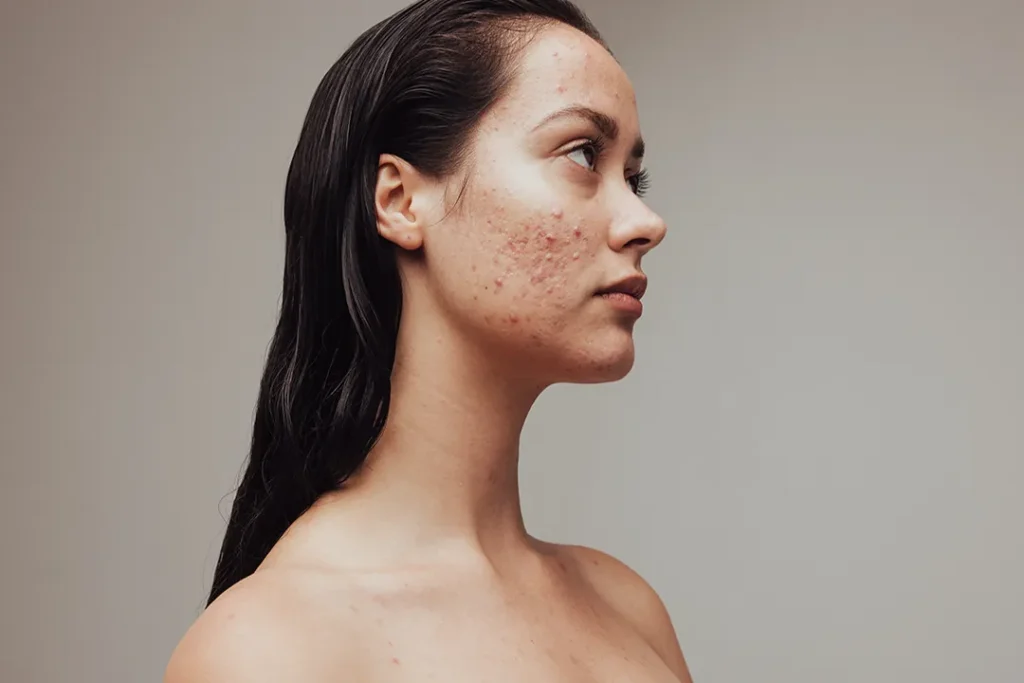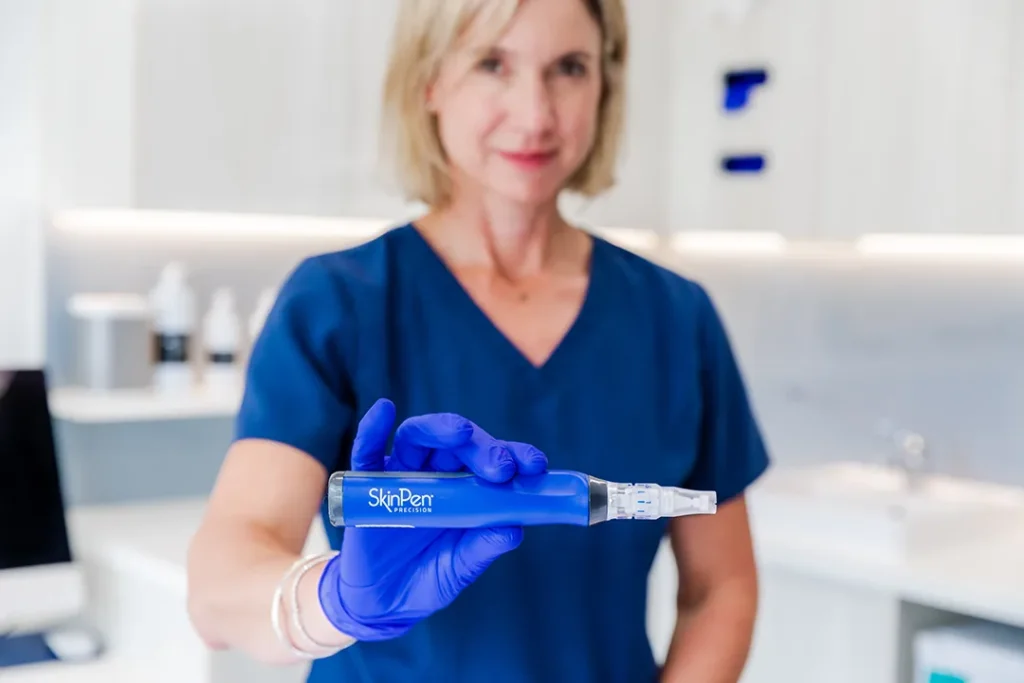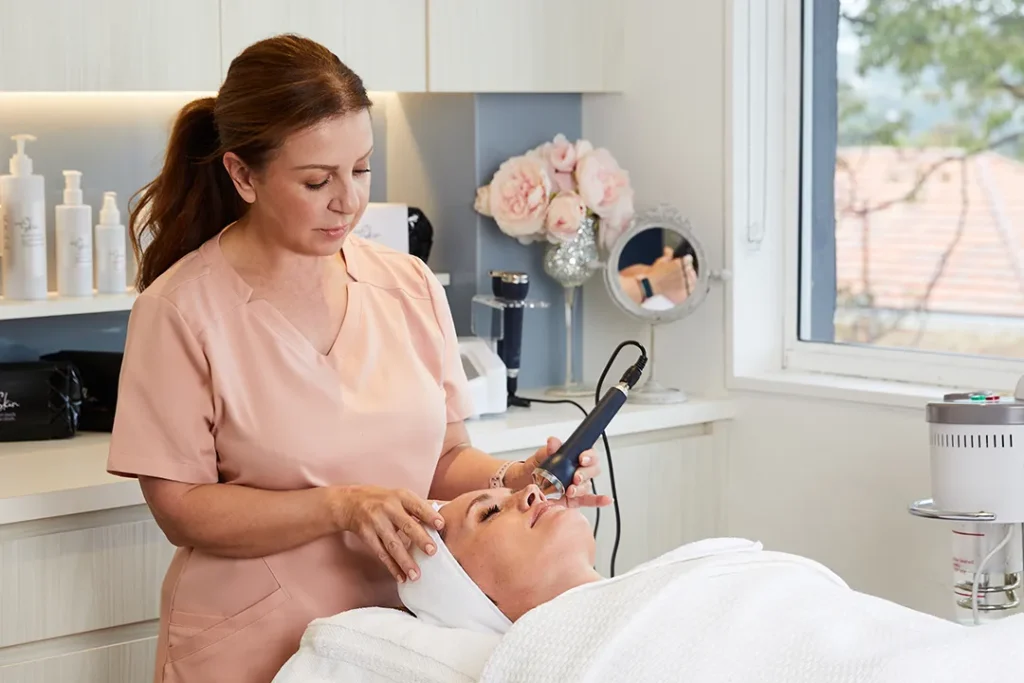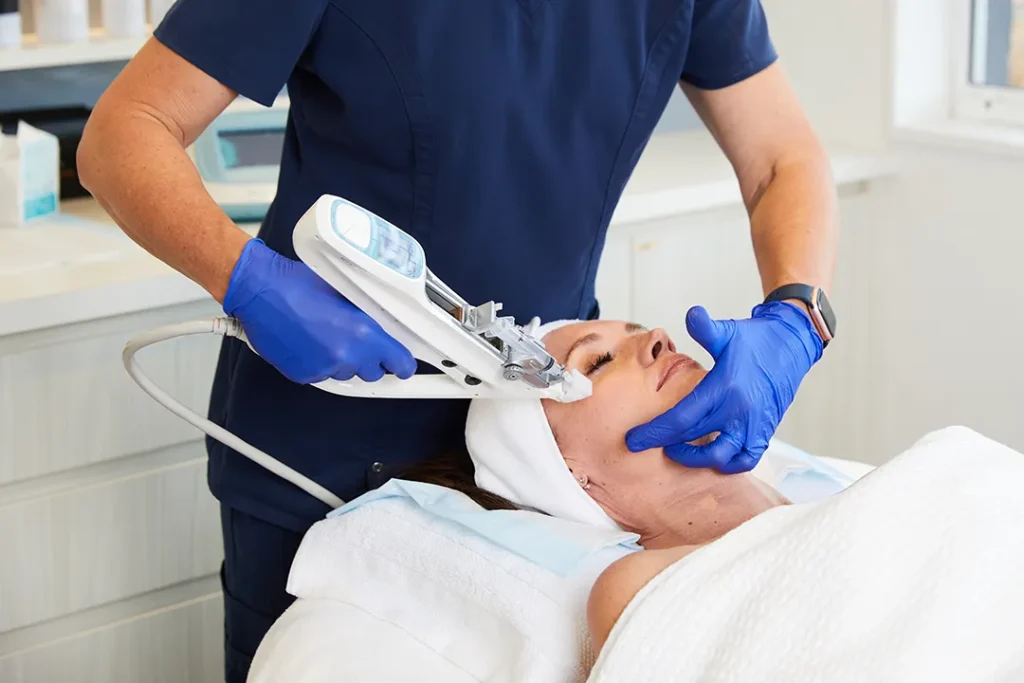Unfortunately, a wrong choice in cosmetic medicine may leave you with more than a tummy ache.
Unanswered Questions: What You MUST Know
There are so many questions that people ask themselves when they are considering a cosmetic treatment:
- How do I choose?
- Is one treatment enough?
- Can I get a discount?
- Should I shop around?
- Which one is cheapest?
These questions are meaningful, of course, but they fail to zero in on the single most important piece of information a patient needs to have. Ask this question to help protect yourself from disappointing results and reduce a lot of financial heartache:
Which practitioner has the most experience and is best qualified to help me with my concern?
Getting the Most from Cosmetic Injectables
No one ever advertises that they have just finished their training so “call now to book your first treatment.” Experience is an essential component in anti-ageing with cosmetic injectables. What many patients fail to realise is that every person has a one-of-a-kind facial structure with unique:
- Lines
- Symmetry
- Muscle strength
As a result, no two people are going to need exactly the same number of units or mls in the same area. “It is very important that an expert assess your face and prescribe/administer the right dose tailored to your needs,” explains Dr Austin. “I always recommend that patients ask about the qualifications and experience of the practitioner before booking any cosmetic treatment.”
Who’s Holding the Needle?
A good medical practitioner may or may not have the right people on staff. “Be sure to check on the experience of the nurse injector and not just those of the doctor giving you the consult,” urges Dr Austin. There are some very good nurse injectors out there but there are a lot of poorly trained ones with little to no experience as well. “Unfortunately, the regulations in the cosmetic industry are quite lax about who can perform treatments and what sort of training they need to have completed,” she says.
As the demand for injectables has increased, so have the number of people trying to cash in and take advantage of it. “As a rule of thumb, ask the questions you need answered about training and experience,” says Dr Austin. “You won’t offend anyone!”
If you do, then they probably aren’t the right person to see anyway. Price Points vs. Pain Points Price shopping has become very common as people comb the Internet to find which treatment is cheapest. As muscle relaxants (for example) need a top up every 3-4 months it’s prudent to make cost a concern. A concern, however, is not a priority. What is a priority is the skill of the person performing the injecting.
What few people realise is muscle relaxants are not injected straight out of the bottle. They must be carefully and meticulously mixed before being injected. While this is not a difficult task, it does underscore the idea that these are medical treatments that should be undertaken by trained medical professionals.
Muscle relaxants and dermal fillers are classified as schedule 4 drugs. This means:
- Only a doctor can legally purchase them.
- A doctor must see all patients before an injectable treatment to take a medical history.
- Patients must sign a consent form to ensure they understand the risks of the treatment they are undertaking.
Sometimes this is accomplished through a Skype consultation if the injector is a nurse, which is permitted by law if the injector is qualified. “A legitimate phone consultation takes a bit of time,” says Dr Austin. “A patient needs to be interviewed at length about medical history and goals, and give the opportunity to have any questions answered.”
Cosmetics vs. Cosmetic MEDICINE
Non-surgical cosmetic treatments, particularly injectables, are booming and more readily available than ever before at beauty salons, spas, and even the occasional hotel room. This has led to disastrous results on more than one occasion. Caught up in the glitz and glam of the promise of instant anti-ageing, people have forgotten that cosmetic medicine, as the name says, is a medical treatment and not a beauty treatment. They fail to ask critical questions such as :
- Who is injecting?
- How well trained are they?
Roadside Assistance: Cosmetic Injectable Do’s and Don’ts
At the end of the day, it’s your face and your decision. The journey to a more beautiful you will be less bumpy if you remember these tips:
Don’t Be Mesmerised by Price – As in all things, you get what you pay for in cosmetic medicine. The cost represents the price of the product and the treatment, but also factors in the skill and experience of the injector/practitioner. Paying for expertise is a good investment.
Don’t Be Dazzled by Promises – It’s easy (and fun) to get caught up in the glitz and glam of the injectable experience: free champagne…hot music…a more beautiful you. Take a breath and slow down! Ask for the facts first, read the consent form thoroughly, and then make an informed (and sober) decision.
Ask Who You’re Seeing – It’s vital to know the qualifications of the practitioner you are seeing. If it is your first time seeing a nurse injector, confirm that you will be having a consult with a doctor first.
Do Choose the Right Experience – A doctor with a 25-year history in family medicine but who has only been injecting for six months may be a qualified physician, but s/he is not yet an expert in cosmetic medicine. Look for someone who is specifically trained and experienced in the treatment that interests you.
Do Ask for Referrals and Recommendations – Often the best guidance you can get will be from someone you know who has “been there and done that.”
Do a Reality Check – Check a practitioner’s website or ask in-clinic to see real patient results. “Often clinics use the before and after photos given to them by the drug companies,” explains Dr Austin. By asking to see real patient results you are asking to see what sort of work that person does.
We’d love to see you at the Austin Clinic on Wanganella Street in NSW to talk about your anti-ageing goals!




